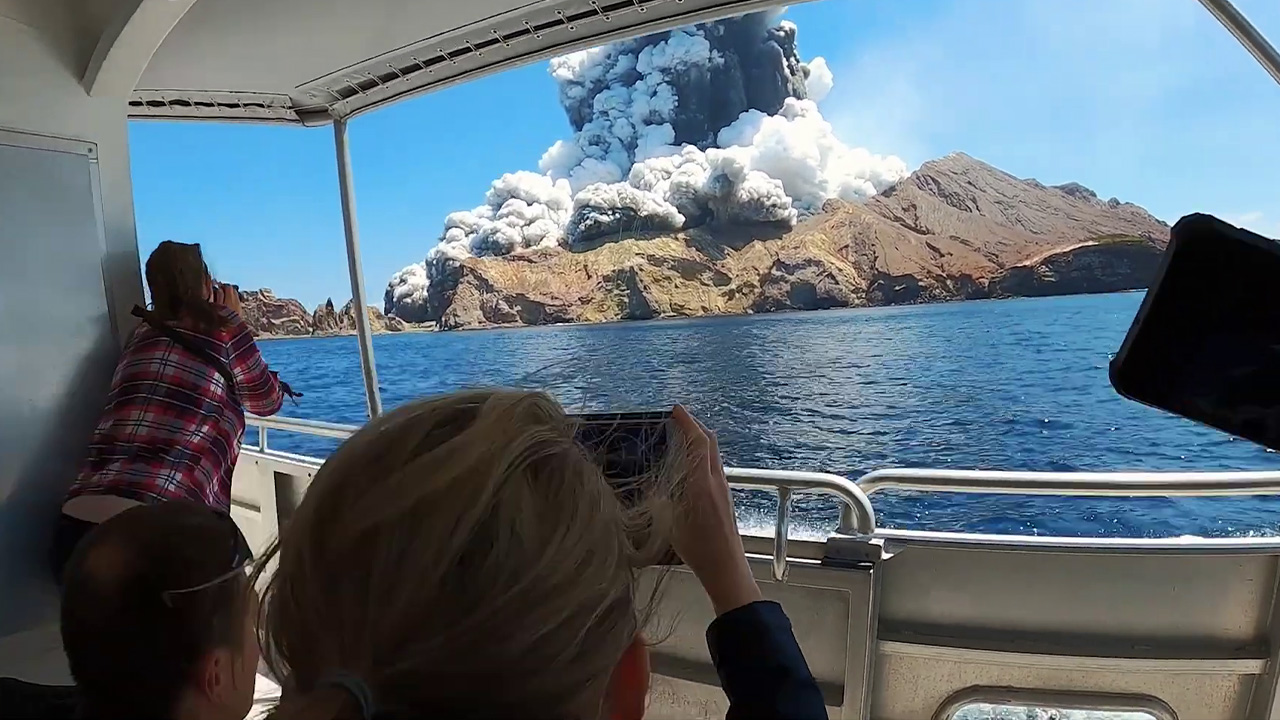The Volcano: Rescue from Whakaari is an affecting account of a tragic natural disaster
Often deeply saddening and harrowing, this is also a survival story about everyday heroism.

Netflix documentary The Volcano: Rescue from Whakaari examines the volcanic eruption of 2019 in which 22 lives were lost. As Liam Maguren writes, director Rory Kennedy has crafted a respectful and affecting account of the tragic disaster.
The Volcano: Rescue from Whakaari
Whakaari (White Island) had been a popular tourist destination in Aotearoa (New Zealand) for many years. An easily accessible active volcano, its multi-coloured alien-like terrain proved to be the stuff of wonders, a journey to another planet that was a mere boat ride away. On 9 December 2019, one of the nation’s darkest days unfolded: Whakaari erupted with sightseers still on the volcano.
How could this have happened? It’s a simple question leading to a set of unwieldy questions about the complex nature of eruptions, the NZ Police’s rescue protocols, and tourism companies properly informing their customers of the inherent risks of such activities. Wisely, Oscar-nominated American filmmaker Rory Kennedy (Last Days in Vietnam) doesn’t attempt to unpack these issues, focusing instead on detailing the disaster as it unfolded.
Using interviews with survivors, police, friends and families of the victims, Māori leaders, and other Whakaari experts, Kennedy weaves a straightforward but sensitive narrative built from the words of those affected by the tragedy. It probably goes without saying, but a number of these discussions are deeply saddening and harrowing, whether it’s someone expressing the pain of losing a loved one or recounting the moment they thought they were going to die.
But this is also a survival story about everyday heroism, and by telling the story so straight, Kennedy allows these tales to feel as genuine as a human conversation. The documentary puts particular focus on an American couple away on their honeymoon, a gutsy Australian teen, a courageous Irish helicopter pilot, and two incredibly brave local tour guides. Releasing three years after the eruption, The Volcano: Rescue from Whakaari also shines an illuminating light on the long-term effects of experiencing such an event—from the trauma of rehabilitation to the victory of recovery. It hits the heart in multiple ways.
And then there are the ones unharmed by the initial eruption who went back to Whakaari to help the less fortunate. The aforementioned tour guides are given a fitting recognition for their courage along with the boat captains who made the snap decision to return and ferry the injured to shore. But to understand the comedically blunt and uniquely Kiwi attitude to doing the right thing, you only need to hear one local’s response to learning professional rescuers were not coming: “Aw yeah? Uh, OK… We’re going to do it ourselves.”
Looming above all the human stories is the inescapable fact that Whakaari (and active volcanoes in general) is an almighty and untamable being. Since everyone’s armed with a camera phone, the film captures Whakaari’s power from numerous angles, and basic CG renderings of the volcano assist in completing this picture. Kennedy has achieved a respectful and affecting account of this tragic disaster, and while it might not aim to deliver the cinematic oomph of similar 2022 docs like Fire of Love, The Territory, and The Velvet Queen, The Volcano: Rescue From Whakaari succeeds in promoting a need to respect and deeply consider these forces of nature.






















